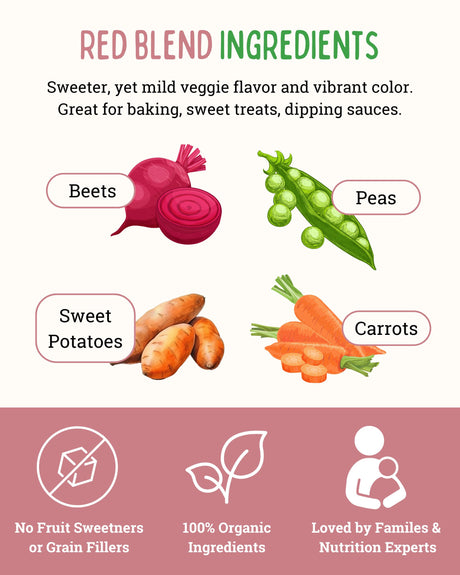Importance of Healthy Eating Habits in Toddlers
Healthy eating habits play a crucial role in the growth and development of toddlers, providing them with essential nutrients needed for optimal health. Establishing good eating habits during the toddler years can set the stage for a lifetime of healthy choices and reduce the risk of chronic diseases later in life.
Challenges in Establishing Healthy Eating Habits
While promoting healthy eating habits in toddlers is important, it can also pose various challenges for parents and caregivers. Toddlers can be picky eaters, have erratic eating patterns, and may resist trying new foods. Additionally, busy schedules and conflicting dietary advice can make it difficult for parents to navigate the nutritional needs of their toddlers.
The goal of this blog is to offer practical tips and strategies to help parents and caregivers navigate the challenges of fostering healthy eating habits in toddlers. By addressing common concerns and providing actionable advice, the aim is to empower parents to create a positive eating environment and instill healthy eating habits in their young children.
Nutritional Needs of Toddlers
Specific Nutritional Requirements
Toddlers have distinct nutritional needs as they transition from infancy to childhood. Key nutrients essential for their growth and development include protein, carbohydrates, healthy fats, vitamins, and minerals.
Protein is crucial for building and repairing tissues, while carbohydrates provide energy for their active lifestyles. Healthy fats, such as those found in avocados and nuts, support brain development.
Importance of Balanced Meals and Snacks
Balanced meals and snacks are fundamental for toddlers to thrive. These meals should include a variety of food groups to ensure they receive adequate nutrients for growth and development. Fruits and vegetables provide essential vitamins and minerals, while whole grains offer fiber and sustained energy. Lean proteins like poultry, fish, and legumes support muscle development.
Common Nutritional Concerns

Despite parents' best efforts, toddlers may experience common nutritional concerns and deficiencies. Iron deficiency is prevalent among toddlers, affecting their cognitive development and immune function. Ensuring iron-rich foods like lean meats, beans, and fortified cereals are part of their diet can help mitigate this issue.
Additionally, vitamin D deficiency may arise, impacting bone health. Incorporating vitamin D-rich foods like fortified dairy or supplements as recommended by a healthcare provider can address this concern.
Creating a Positive Mealtime Environment
Importance of a Positive Atmosphere
Establishing a positive and relaxed atmosphere during mealtimes is crucial for fostering healthy eating habits in toddlers. Mealtime should be a time for connection and enjoyment, rather than stress or pressure.
Creating a pleasant environment can help toddlers associate mealtime with positive experiences, making them more likely to try new foods and develop healthy eating habits. Parents can achieve this by setting a welcoming table, minimizing distractions, and engaging in pleasant conversation during meals.
Strategies for Reducing Mealtime Stress
Mealtime stress and battles can often arise, but there are strategies parents can employ to minimize these challenges. One effective approach is to establish routines and meal schedules, providing toddlers with a sense of predictability. Offering a variety of nutritious foods and allowing toddlers to choose from options can also empower them and reduce resistance.
Role of Parents in Modeling Healthy Behaviors
Parents and caregivers play a crucial role in modeling healthy eating behaviors for toddlers. Children are more likely to adopt positive habits when they observe adults enjoying a variety of nutritious foods. Engaging in family meals and demonstrating enthusiasm for healthy eating can influence toddlers' food choices and attitudes towards mealtime.
Introducing Variety and Exploration
Tips for Introducing New Foods
Start by offering small portions of unfamiliar foods alongside familiar favorites to increase acceptance. Encourage toddlers to explore new foods with their senses, allowing them to touch, smell, and taste different textures and flavors. It's important to remain patient and persistent, as it may take several exposures before a toddler accepts a new food.
Benefits of Food Variety
Exposing toddlers to a variety of foods is crucial for their overall nutrition and palate development. Each food offers a unique combination of nutrients, and consuming a diverse range of foods helps ensure that toddlers receive a wide array of essential vitamins and minerals. Additionally, exposure to different flavors and textures early in life can help prevent picky eating habits and promote a more adventurous palate as toddlers grow older.
Making Mealtime Exploration Fun

Making mealtime exploration fun and engaging can encourage toddlers to try new foods with enthusiasm. Get creative by arranging food in colorful and appealing ways on the plate, such as arranging fruits and vegetables into fun shapes or creating themed meals. Involving toddlers in meal preparation, such as allowing them to help wash fruits or stir ingredients, can also increase their interest and excitement about trying new foods.
Portion Sizes and Balanced Meals
Guidelines for Portion Sizes
Determining appropriate portion sizes for toddlers can be challenging but crucial for their nutritional intake. As a general guideline, a toddler's portion size is about one-quarter to one-third of an adult serving.
It's essential to consider the individual appetite and activity level of each child when serving meals and snacks. Pay attention to hunger and fullness cues, and avoid pressuring toddlers to finish everything on their plate.
Importance of Balanced Meals and Snacks
Providing toddlers with balanced meals and snacks is crucial for meeting their nutritional needs and promoting healthy growth and development. A balanced meal typically consists of a combination of carbohydrates, protein, healthy fats, fruits, and vegetables.
Incorporating a variety of food groups ensures that toddlers receive essential nutrients such as vitamins, minerals, and fiber. Moreover, offering balanced meals can help stabilize toddlers' energy levels and support their concentration and mood throughout the day.
Examples of Balanced Meal Ideas
Creating balanced meals for toddlers can be both nutritious and delicious. Snack ideas can include apple slices with almond butter, yogurt with berries, or whole grain crackers with cheese slices. By offering a variety of balanced meal options, parents can ensure that toddlers receive the nutrients they need for optimal health and development.

Managing Picky Eating and Food Preferences
Common Challenges
Picky eating and food refusal are common challenges faced by parents of toddlers. It's natural for toddlers to exhibit selective eating behaviors as they explore new foods and assert their independence. However, extreme picky eating can lead to nutritional deficiencies and mealtime battles, causing stress for both parents and children.
Strategies for Management
Parents can employ various strategies to manage picky eating and expand their toddler's food preferences. One approach is to offer a variety of foods and consistently expose toddlers to new flavors and textures.
Gradually introducing unfamiliar foods alongside familiar favorites can help desensitize toddlers to new tastes and increase acceptance over time. Additionally, involving toddlers in meal preparation and allowing them to participate in grocery shopping or gardening activities can foster a sense of ownership and excitement about trying new foods.
Tips for Encouraging Adventurous Eating
Encouraging adventurous eating in toddlers requires patience and creativity. Parents can make mealtime fun and interactive by arranging food in colorful and appealing ways or creating themed meals based on their child's interests.
Offering praise and positive reinforcement when toddlers try new foods, even in small amounts, can help build confidence and motivation to explore unfamiliar flavors. Additionally, incorporating food exploration activities such as taste tests, food art projects, or cooking experiments can make the dining experience enjoyable and educational for toddlers. By adopting a positive and proactive approach to picky eating, parents can help their toddlers develop a more varied and nutritious diet over time.
Healthy Snack Options
Nutritious Snack Ideas
Finding nutritious snacks that toddlers enjoy can be challenging, but there are plenty of options to explore. Fresh fruits like berries, bananas, and apple slices are not only tasty but also packed with vitamins, minerals, and fiber. Vegetables such as carrot sticks, cucumber slices, and bell pepper strips can be paired with hummus or yogurt dip for added flavor and nutrition.
Whole grain crackers or rice cakes topped with nut butter or avocado are convenient and satisfying options that provide healthy fats and carbohydrates for sustained energy.

Importance of Healthy Choices
Offering healthy snack choices is essential for supporting toddlers' growth and development. Nutrient-dense snacks provide essential vitamins, minerals, and macronutrients needed for optimal health and energy levels.
By choosing wholesome snacks over processed and sugary options, parents can help instill lifelong healthy eating habits in their children. Additionally, nutritious snacks can help stabilize toddlers' blood sugar levels, preventing energy crashes and mood swings throughout the day.
Supporting Nutritional Needs
Snacks play a crucial role in meeting toddlers' nutritional needs, especially as they have smaller stomachs and may need to eat more frequently than adults. Healthy snacks can contribute to toddlers' overall intake of essential nutrients, including protein, carbohydrates, healthy fats, vitamins, and minerals.
By offering a balanced combination of food groups in snacks, parents can ensure that toddlers receive the necessary nutrients to support their growth, development, and immune function. Encouraging toddlers to snack mindfully and listen to their hunger and fullness cues can help establish healthy eating habits from a young age.
Involving Toddlers in Meal Preparation
Benefits of Involvement
Involving toddlers in meal planning and preparation can have numerous benefits for their development. It provides an opportunity for them to learn about different foods, where they come from, and how they are prepared. Engaging in meal preparation also promotes fine motor skills and hand-eye coordination as toddlers participate in activities like stirring, pouring, and chopping (with appropriate supervision).
Additionally, involving toddlers in the kitchen fosters a sense of independence and confidence as they contribute to family meals.
Age-Appropriate Tasks
When it comes to tasks in the kitchen, it's important to choose activities that are safe and suitable for toddlers' abilities. Simple tasks like washing fruits and vegetables, tearing lettuce leaves, or arranging ingredients on a plate can be enjoyable and empowering for toddlers.
They can also help set the table, pour ingredients into bowls, or mix ingredients under close supervision. As toddlers grow and develop, they can gradually take on more complex tasks with guidance from adults.
Fostering a Positive Relationship with Food
Encouraging toddlers to participate in meal preparation can help foster a positive relationship with food. By involving them in the process of selecting, preparing, and enjoying meals, parents can instill a sense of curiosity and appreciation for different foods.
This hands-on approach allows toddlers to explore new flavors and textures in a supportive environment, promoting adventurous eating habits. Additionally, involving toddlers in meal preparation creates opportunities for quality family time and bonding over shared experiences in the kitchen.
Addressing Common Concerns and Challenges
Handling Dietary Restrictions
It's not uncommon for toddlers to have food allergies, sensitivities, or special dietary needs that can present challenges at mealtime. Parents may feel overwhelmed or unsure of how to accommodate these dietary restrictions while still ensuring their child receives adequate nutrition.
In such cases, it's crucial to consult with a healthcare professional or registered dietitian who can provide personalized guidance and support. They can help identify safe alternatives and ensure that the toddler's nutritional needs are met while avoiding potential allergens or triggers.
Navigating Mealtime Challenges
Mealtime with toddlers can be unpredictable, with challenges like food refusal, tantrums, or selective eating behaviors. Parents may encounter setbacks or struggle to find solutions that work for their child. In these situations, it's essential to remain patient and persistent while also being flexible and adaptable.
Encouraging a positive mealtime environment, offering choices within healthy options, and involving toddlers in meal planning and preparation can help alleviate some of these challenges. Additionally, parents can seek support from other caregivers or parenting groups to share experiences and strategies for managing mealtime difficulties.
Seeking Additional Support
For parents facing persistent challenges or seeking further assistance in fostering healthy eating habits for their toddlers, there are resources and support available. Online forums, parenting websites, and community groups can provide valuable insights and advice from other parents who have experienced similar issues.
Additionally, seeking guidance from healthcare professionals, such as pediatricians, registered dietitians, or feeding therapists, can offer tailored recommendations and interventions to address specific concerns. Remember that every child is unique, and it may take time to find the approach that works best for your toddler's individual needs.
Summary
In this blog, we've explored practical strategies for fostering healthy eating habits in toddlers. Understanding the nutritional needs of toddlers and addressing common concerns and challenges can lay the foundation for a lifetime of good health. From creating a positive mealtime environment to offering nutritious snack options and involving toddlers in meal preparation, there are many ways parents can support their child's nutrition and well-being.
Importance of Positive Mealtime Environment
A positive mealtime environment sets the stage for enjoyable and nutritious eating experiences for toddlers. By creating a relaxed atmosphere, reducing mealtime stress, and modeling healthy eating behaviors, parents can help instill positive attitudes towards food and mealtimes. Introducing variety and exploring new foods can also expand toddlers' palates and encourage healthy eating habits from an early age.
Encouragement for Implementation
It's essential for parents to implement the strategies discussed in this article to support their toddler's nutrition and overall well-being. While mealtime with toddlers can sometimes be challenging, patience, consistency, and creativity can go a long way in fostering healthy eating habits. By offering nutritious foods, involving toddlers in meal preparation, and seeking support when needed, parents can help lay the foundation for a lifetime of healthy eating habits and positive relationships with food.
Leave your comments below; we love to hear from you! And don't forget to follow EasyPeasie for more veggie info and convo on YouTube, Facebook, and Instagram! ~ThePeas













